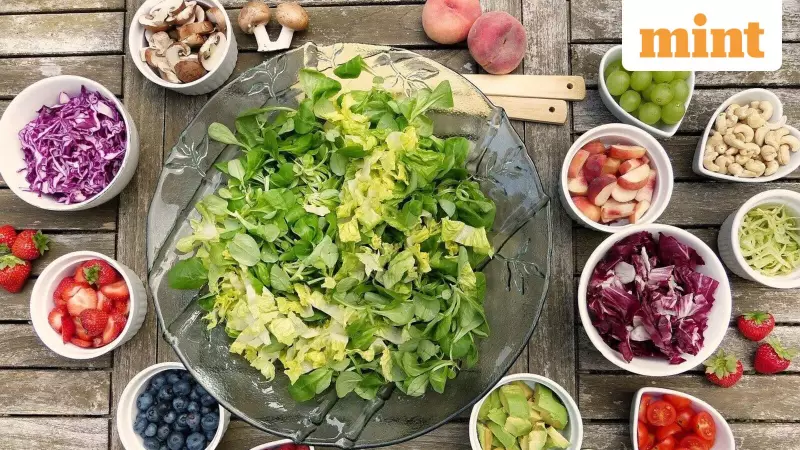
The festive season in India brings immense joy, delicious treats, and cherished moments with loved ones. However, the aftermath of rich foods, irregular sleep, and reduced physical activity often leaves many feeling sluggish, heavier, and out of sync. Integrative lifestyle expert Luke Coutinho emphasizes that the solution lies not in harsh detoxes or fad diets, but in a compassionate, gentle recalibration of our daily habits.
This approach is about realigning with your body's natural rhythm, not punishing it for enjoying the celebrations. Whether you're looking to stabilize blood sugar, reboot your digestion, or strengthen immunity, simple, mindful lifestyle adjustments can create a significant positive impact.
Shift Your Mindset: From Guilt to Gratitude
According to Coutinho, the first and most crucial step is a mental shift. Panicking and trying to 'undo' the festive indulgences with extreme measures only adds to your stress levels. Chronic stress, he points out, negatively affects immunity, digestion, and hormonal balance.
Instead of guilt, practice gratitude for the joy and connection you experienced. Honour the food and festivities, and then gently begin to reintroduce structure into your day. Your body craves rhythm, not punishment. Mindful adjustments made from a place of self-care are far more effective and sustainable than those driven by a need for control.
Understanding the Post-Celebration Slump
That feeling of fatigue and low energy is not imaginary. Days filled with sugary desserts, fried snacks, celebratory drinks, and late nights lead to significant glycaemic fluctuations. These spikes and crashes in blood sugar directly impact your mood, energy, and sleep quality.
Excessive sugar intake combined with a disrupted sleep cycle can increase internal inflammation, weaken immune function, and promote oxidative stress. This vicious cycle leaves you feeling tired, bloated, irritable, and craving more sugar. The key is not to panic or restrict severely, but to mindfully understand what your body truly needs to recover.
Nourishing Foods to Rebuild and Repair
After a period of excess, your body needs nourishment and rest, not a harsh cleanse. Here are some simple dietary tweaks recommended by experts to reset your metabolism and support immune recovery.
- Hydration First: Begin your day with room-temperature water to gently wake up your system. Prioritize water throughout the day and limit caffeinated and sugary beverages.
- Choose Cooked Foods: Opt for warm, soothing meals like millet khichdi with ghee, steamed vegetables, or hot soups, especially for breakfast.
- Increase Fibre Intake: Incorporate raw salads with ingredients like beetroot, radish, and carrots to aid digestion.
- Eat the Rainbow: Fill half your plate with colourful, antioxidant-rich vegetables to help manage inflammation.
- Incorporate Bitter and Sour: Add curry leaves, neem, amla, and fermented foods to support gut and liver health.
- Support Gut Bacteria: Include prebiotic and probiotic-rich foods in your diet.
- Bake, Don't Fry: Drastically reduce fried food consumption and avoid reusing cooking oils.
- Take a Break from Leftovers: Give your digestive system a 3 to 5-day rest from sugar, refined oils, and rich festival leftovers.
Think of this phase as providing your gut with a much-needed respite for repair.
Rebooting Your Sleep and Daily Rhythm
Festive routines often throw our internal body clock, or circadian rhythm, completely off balance. The good news is that even a few days of consistent routine can have measurable benefits for your energy, digestion, and immunity.
Focus on going to bed and waking up at the same time each day. Ensure your last meal is at least three hours before bedtime. A slow walk or some gentle stretching in the evening can signal your body to wind down. Try to get some natural sunlight and fresh air soon after you wake up, and make a conscious effort to avoid screens for at least 60 minutes before sleep.
For a deeper sleep, try this gentle routine: take a few slow, deep breaths, mentally list three things you are grateful for, and focus on feelings of calm. Your body heals most effectively when it feels safe and relaxed.
Movement as Gentle Medicine
You don't need to launch into an intense, punishing workout regimen. Your body needs structured movement that aids recovery. Start with light, consistent activities like morning or post-meal walks, yoga twists that support digestion, or stretches that encourage lymphatic drainage.
Long walks, yoga, smart weight training, barefoot grounding, sun exposure, and conscious breathing are all powerful tools. These activities help regulate blood sugar, improve mood, and gently awaken the immune system. Let movement be your quiet, steady way of returning to a state of balance.
The journey back to feeling your best after the holidays is not about drastic measures. It is about giving yourself grace, listening to your body, and making small, caring choices that restore your natural rhythm from the inside out.






